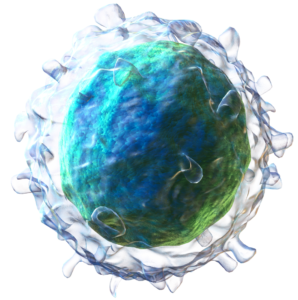

Immunity conferred by influenza virus vaccine is short-lived. After immunization with inactivated influenza virus vaccine, serum antibody levels peak within a few months and then decline rapidly. This decline was recently shown to be caused by loss of bone marrow plasma cells, a major source of serum antibodies. Results of a recent study partially address the relevance of this observation to infection with SARS-CoV-2.
After immunization, antigen-specific B cells produced in the periphery give rise to antibody-producing plasma cells. Some of these B cells migrate to the bone marrow where they remain for many years and serve as a source of anti-viral antibodies to protect against infection or disease. Such bone marrow plasma cells are produced after immunization with inactivated influenza virus vaccine, but they are lost within a year.
An important question raised by these findings is whether immunization with SARS-CoV-2 vaccines will produce short or long-lived bone marrow plasma cells. It is too soon to know the answer but clues are provided by a study of patients previously infected with SARS-CoV-2. Examination of serum antibodies to the virus in symptomatic and recovered patients revealed a rapid rise in levels of anti-spike protein antibodies shortly after onset of symptoms. However within months the antibody levels declined to baseline levels observed in control patients.
To determine if antibody-secreting cells persist longer, virus-specific memory B cells and plasmablasts (the precursors of antibody secreting plasma cells) were isolated from patient blood. In contrast to the observed decay of serological antibody memory, the B cells and plasmablasts were stable for up to 6 months following recovery from COVID-19.
These observations suggest that virus-specific B cells should be available to provide anti-viral antibodies in the event of reinfection. Whether these B cells persist for longer than 6 months needs to be determined by additional studies. More importantly, this study did not address whether bone marrow plasma cells persist long after infection, a question that could be answered once SARS-CoV-2 vaccines are licensed and used.

Pingback: Longevity of SARS-CoV-2 memory B cells - Virology Hub
“However within months the antibody levels declined to baseline levels observed in control patients.”
What does this mean? How can people with antibodies to SARS-CoV-2 be ‘control patients’?